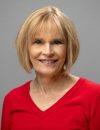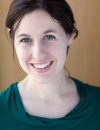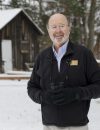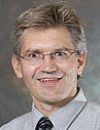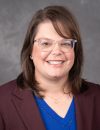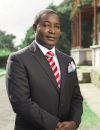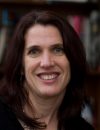About 1% of COVID-19 tests administered by UW-Madison over the past three weeks came back positive, according to a new data dashboard that launched Wednesday.
UW In The News
-
New York Will Test the Dead More Often for Coronavirus and Flu
Thorough testing can also affect which bodies are autopsied at medical examiners’ offices, where resources and staff have been strained, said Dr. Erin Brooks, a pathologist at the University of Wisconsin-Madison. Someone whose cause of death can be confirmed by a positive test for the coronavirus, for instance, might not need to be investigated further.
-
In Year of Voting by Mail, a Scramble to Beef Up In-Person Voting, Too
For all of the attention on voting by mail, perhaps four in 10 votes — 60 million ballots — are likely to be cast in person this fall, either early or on Election Day. Overall turnout could well reach 150 million for the first time, up from 137.5 million in 2016, according to Barry C. Burden, the director of the Elections Research Center at the University of Wisconsin-Madison.
-
Digital vote suppression efforts are targeting marginalized groups, report warns
“It’s really hard to persuade people … to convert or convince the disinterested, but it’s easy to suppress turnout if you target people who are marginalized, like non-whites and female and younger voters,” said Young Mie Kim, a journalism professor at the University of Wisconsin-Madison who has studied misinformation networks on social media. “All you need to do is make sure they don’t turn out to vote.”
-
Commission charts narrow path for editing human embryos
“I welcome the commission’s report, which continues to add depth to the ongoing global conversation about the science of germline editing,” says Alta Charo, a bioethicist at the University of Wisconsin, Madison, who is part of a committee organized by WHO that is examining how to best govern this controversial arena.
-
Borsuk: In a pandemic-altered school year, educators face challenge tracking student progress
How are people going to figure out how students are doing in school this year?
“I can’t imagine how this isn’t going to be the most challenging year that we’ve ever had for answering that question,” said Brad Carl, an expert on the subject who is with the Wisconsin Center for Education Research at the University of Wisconsin-Madison. “How are we going to tell?”
-
UW seeks 2,000 people for Phase III clinical trial of potential COVID-19 vaccine
A crucial Phase III clinical trial of a vaccine against COVID-19 begins this week at the University of Wisconsin-Madison School of Medicine and Public Health and its teaching hospital UW Health.
-
Coffee, Ketchup and Nike Air Max: It’s the COVID Consumer Economy
Michael Collins, a professor at the University of Wisconsin’s consumer science department, calls this a “substitution effect.”
“It’s pretty clear people behave as if they have different pots of money,” he said. “Now I don’t eat out at all, so I have a couple of hundred dollars of new income not allocated to anything. I can substitute that money away from eating out and treat myself to other things.”
-
Michael Moore says Trump on course for win in presidential election
“In Minnesota, it’s 47-47,” Moore continued. “In Michigan, where Biden had a big lead, Trump has closed the gap to 4 points.” In a poll published on August 20, the GOP-leaning Trafalgar Group found support for Biden and Trump tied at about 47% in Minnesota, while another poll by the University of Wisconsin-Madison found Biden with a 4-point lead over Trump in Michigan.
-
Twitter deletes Trump’s coronavirus death toll retweet, citing misinformation
“Comorbidities” reported by the CDC include heart disease, obesity, diabetes and hypertension — conditions that can make a person more vulnerable to the virus. Each would be listed on a person’s death certificate, along with covid-19. Death certificates may also list sepsis, respiratory arrest, kidney failure or other conditions as the immediate cause of death, but those are caused by the infection. The virus remains the reason that they died, said Nasia Safdar, an infectious-disease professor at the University of Wisconsin at Madison.
-
These Scientists Are Giving Themselves D.I.Y. Coronavirus Vaccines
There is a long history of scientists openly testing vaccines on themselves and their children, but in recent decades it has become less common, according to Susan E. Lederer, a medical historian at the University of Wisconsin-Madison. What’s ethically and legally acceptable for testing and distributing your own medical product varies by institution and by country.
-
Police and Race in Kenosha, Beyond the Jacob Blake Shooting
“Midwesterners don’t understand their history of racism, and so these things seem surprising. They seem to come out of nowhere or be new when they’re really a reflection of who we’ve always been,” says Christy Clark-Pujara, associate professor of history at the University of Wisconsin–Madison’s Department of Afro-American Studies. “It’s not terribly surprising to me what happened in Kenosha.”
-
Activists call for an end to systemic racism in America
Christy Clark-Pujara interview
-
Hurricane Laura’s rapid intensification is a sign of a warming climate, scientists say
Jim Kossin, a researcher at the National Oceanic and Atmospheric Administration and the University of Wisconsin, says the warm ocean waters and exchange of heat between the ocean and atmosphere, plus the lack of dry air or strong upper-level winds, created an ideal environment for Hurricane Laura to rapidly intensify all the way to the Louisiana coastline.
-
Kenosha shooting victims Anthony Huber and Joseph Rosenbaum are remembered
“It’s like a funhouse mirror,” said Cecelia Klingele, an associate professor at the University of Wisconsin Law School. “People look at the same facts and have wildly different reactions. It is troubling because when people are having such different reactions, I guess tragedies like this shouldn’t be a surprise. People are afraid of each other and that is a situation that creates danger for everyone.”
-
Twitter suspended dozens of accounts. But were they Russian? It’s hard to tell.
Young Mie Kim, a journalism professor at the University of Wisconsin-Madison who has studied misinformation networks on social media, said the accounts “look like coordinated behavior and share some similar traits with Russian tactics,” but she cautioned about making firm attributions.
-
The Problem with Implicit Bias Training
While the nation roils with ongoing protests against police violence and persistent societal racism, many organizations have released statements promising to do better. These promises often include improvements to hiring practices; a priority on retaining and promoting people of color; and pledges to better serve those people as customers and clients.
Tiffany L. Green
-
Bruce Arians questions effectiveness of protests; DeMaurice Smith responds
Athletes today aren’t necessarily risking life and limb by staging protests — if anything, NFL players are sparing themselves some harm by canceling practices — but according to a professor of Law at the University of Wisconsin-Madison, their platforms give them “a unique role to play” in effecting change.
“Their protest reaches ordinary people in the United States and worldwide,” Linda Greene said via email Thursday. “Their protest also touches and concerns the multibillion dollar interests of coaches, franchises, and media and other corporations, including advertisers, who depend on their labor.”
-
A tiny fish takes on its predators—and wins, transforming the Baltic coast
The work also stands out because it documents such a widespread and lasting ecological shift, adds Steve Carpenter, a limnologist at the University of Wisconsin, Madison. More typically, researchers have observed such shifts in a single location, often a lake, showing how dominance swings back and forth between two species as temperature changes or fishing becomes more intense, he says. The new results “show that regime shifts can spread among connected habitats and transform an entire coastline rather rapidly.”
-
Black Lives Matter Grows as Movement While Facing New Challenges
“Part of what’s going on this spring is continuity from six years ago,” said Pamela Oliver, a professor emeritus of sociology at the University of Wisconsin-Madison. “Groups had actually never stopped. All those street protests that were happening 2014 to 2016 died down after the fall election, but the issue didn’t die down.”
-
Bucs Coach Bruce Arians rips protests, prompting an inspiring response from NFLPA head
Athletes today aren’t necessarily risking life and limb by staging protests — if anything, NFL players are sparing themselves some harm by canceling practices — but according to a professor of Law at the University of Wisconsin-Madison, their platforms give them “a unique role to play” in effecting change.Mets GM apologizes for criticizing MLB commissioner as Mets, Marlins stage silent protest“Their protest reaches ordinary people in the United States and worldwide,” Linda Greene said via email Thursday. “Their protest also touches and concerns the multibillion dollar interests of coaches, franchises, and media and other corporations, including advertisers, who depend on their labor.”
-
Hurricane Laura: map and times of arrival
“Rapid intensification events are more likely because of climate change,” Jim Kossin, a hurricane researcher at the National Oceanic and Atmospheric Administration and the University of Wisconsin, told The Post.
-
UW-Madison releases COVID-19 test results in new data dashboard
-
Many Tulsa Massacres: How the Myth of a Liberal North Erases a Long History of White Violence
However, African Americans have long known that they have deep roots in all regions of the United States. As the African American Bishop Richard Allen wrote in 1829, affirming that Black people belonged:See the thousands of foreigners emigrating to America every year: and if there be ground sufficient for them to cultivate, and bread for them to eat, why would they wish to send the first tillers of the land away? . . . This land which we have watered with our tears and our blood, is now our mother country.
Christy Clark-Pujara is Associate Professor of History in the Department of Afro-American Studies at the University of Wisconsin, Madison. She is the author of Dark Work: The Business of Slavery in Rhode Island. Her current book project, Black on the Midwestern Frontier: From Slavery to Suffrage in the Wisconsin Territory, 1725 to 1868, examines how the practice of race-based slavery, black settlement, and debates over abolition and Black rights shaped White-Black race relations in the Midwest.
-
Laura could rapidly intensify in the Gulf of Mexico
If Tropical Storm Laura does undergo rapid intensification, says Jim Kossin, a researcher at NOAA and the University of Wisconsin, “It’s very likely that climate change is playing some role in that.”
-
How a single superspreading event sent coronavirus across Massachusetts and the world – The Washington Post
The findings match what has been observed on a smaller scale in other studies, said Dave O’Connor, a virologist at the University of Wisconsin at Madison. Superspreading events, which provide the virus with huge numbers of hosts in a small amount of time, are driving the global outbreak. Delays in returning test results make it much more difficult to mitigate their effects; by the time those infected in such events know they’re sick, they have probably infected many more people
-
23,000 absentee ballots were rejected in Wisconsin’s April primary. That’s more than Trump won the state by in 2016.
Rejected mail-in ballots are unlikely to be the deciding factor in the 2020 election — but they could factor in to the result, according to Mike Wagner, a journalism professor who works with the Elections Research Center at the University of Wisconsin-Madison.”This is one of those elections where there are probably 19 things that could move a small number of votes in one way or another,” Wagner said.
-
A safe, healthy path forward from the ravages of the coronavirus
We need consistent tactics to battle this virus. We support national standards for face coverings. Our nation needs uniform criteria for stay-at-home orders, reopening businesses and in-person instruction at K-12 schools. We support the AAMC’s guidance for face coverings. While there are horrible disparities among certain populations, and some location-specific challenges, the biology of the virus does not vary from city to city or state to state. National standards will allow all communities to make informed decisions.
Robert N. Golden, MD, is dean of the University of Wisconsin School of Medicine and Public Health. Joseph E. Kerschner, MD is dean of the Medical College of Wisconsin School of Medicine.See
-
The battle for Wisconsin: Biden tries to avoid mistakes of 2016
Eleanor Powell, a University of Wisconsin-Madison politics professor, said there were reasons to think that they would. She said Mr Biden had better relations with the community, had chosen Kamala Harris, a black woman, as his running mate, and would receive help from Barack and Michelle Obama.
-
As Covid-19 cases in prisons climb, data on race remain largely obscured
John Eason, a University of Wisconsin-Madison sociologist who studies the effect of prisons on rural communities, argued that “it doesn’t matter who it is” that’s getting worse-hit by Covid-19 behind bars, given how many Black individuals are incarcerated. “If we don’t find a way to decarcerate, Black people are going to lose.”
-
What if We Worried Less About the Accuracy of Coronavirus Tests?
But such tests face regulatory hurdles before they can be produced widely. Other rapid tests that are available now may need to be refined further before they can be “operationalized,” or used effectively in an actual setting, like a school, according to Dave O’Connor. He and colleagues in the AIDS Vaccine Reseach Laboratory at the University of Wisconsin, Madison, have been piloting what is called a loop-mediated isothermal amplification (LAMP) test, which can be done on saliva, as part of the N.I.H. Rapid Acceleration of Diagnostics initiative. They’re running their project out of a minivan. “The first day we tested five or six people,” he told me. “Today we ran 80.”
- Newer stories
- Page 53 of 140
- Older stories
Featured Experts
Kathleen Glass: Food safety
Food is an integral part of Thanksgiving. And who doesn't love leftovers? But after how long should you leave those… More
Cecelia Klingele: Body-worn cameras by police
Madison Police Chief Shon Barnes is requesting that the city fund widespread use of body cameras for officers in the… More
Stanley Temple: Fall phenology
The days have finally started getting cooler and we all know winter awaits. Stanley Temple, an expert on birds, wildlife, endangered… More
Jonathan Temte: The seasonal flu shot
Family medicine professor Jonathan Temte is available to discuss this year's updated seasonal flu shot and flu prevention and control. More
Noelle LoConte: Pancreatic Cancer Awareness Month
Pancreatic cancer is one of the most difficult cancers to prevent, diagnose or treat. Earlier this month, music legend Quincy… More
Alvin Thomas: Movember and Men's Health Month
You might see more facial hair this month as Movember goes into full effect, drawing awareness toward men's health. Alvin… More
Dominique Brossard: Vaccine hesitancy
With a new administration poised to take power in January, a change in policy regarding vaccines may also be on the way.… More

